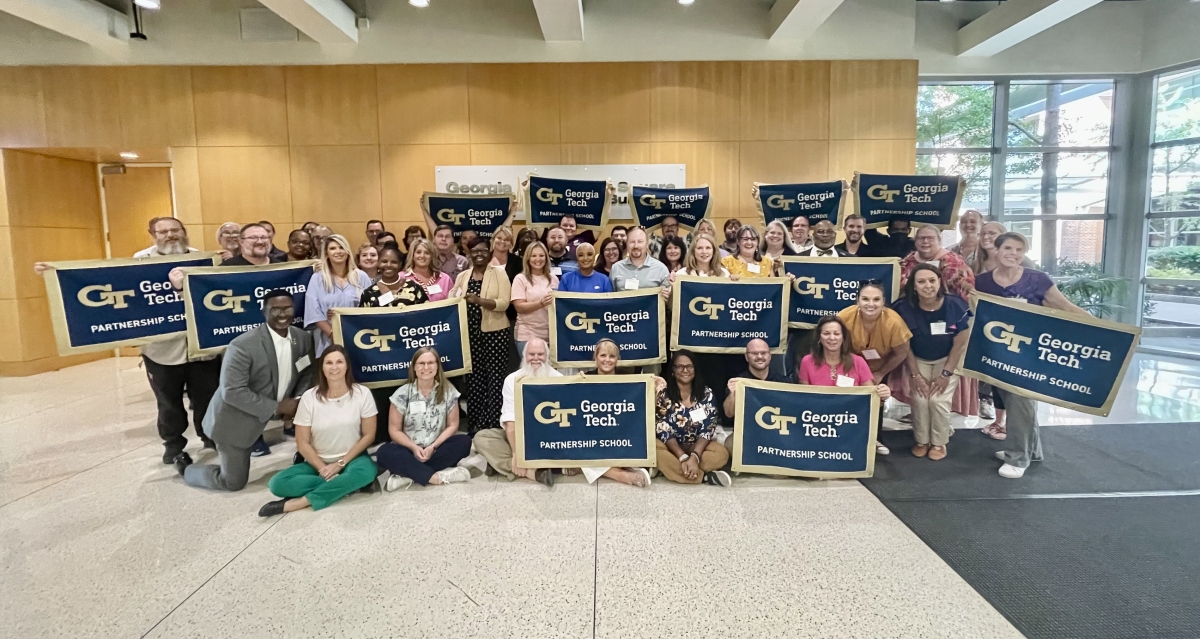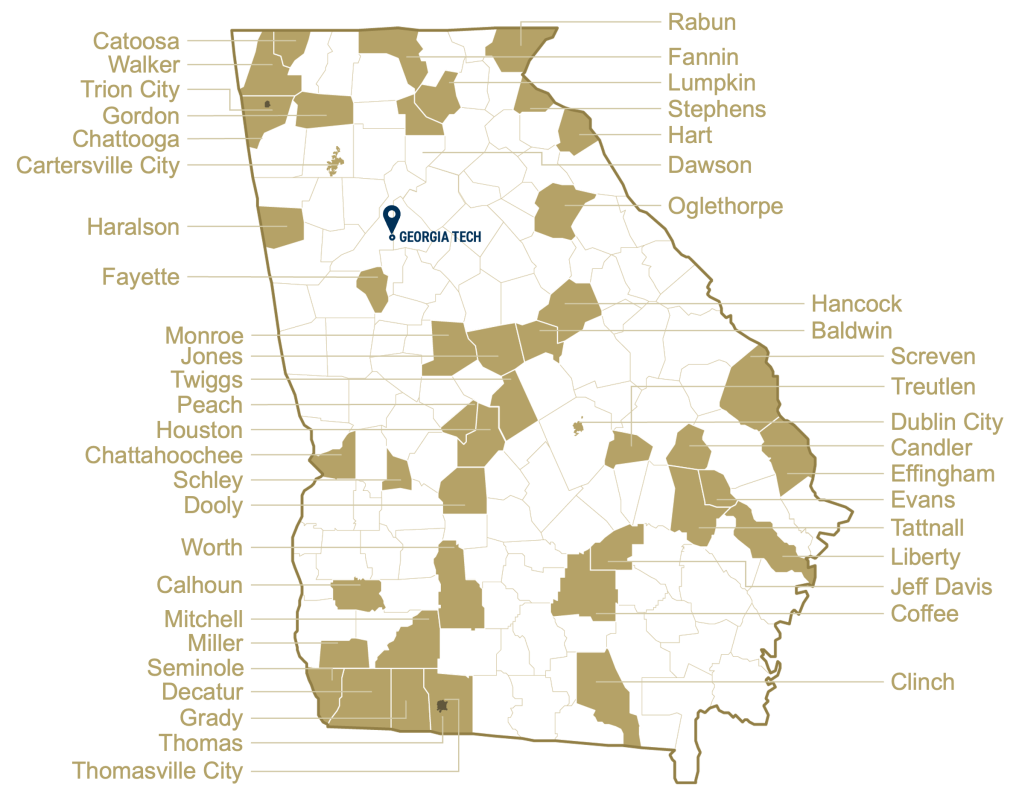
The Rural Computer Science Initiative at Georgia Tech, launched collaboratively by CEISMC and STEM@GTRI, continues to expand access to high-quality computer science education for rural high schools across Georgia. Through this project, participating schools engage with interactive computer science modules based on unique programs and resources at Georgia Tech, developed and led by Georgia Tech faculty. This pioneering initiative aims to bridge the digital divide by offering these modules in critical areas such as coding, cybersecurity, artificial intelligence, sensors, and data visualization. Through this initiative, Georgia Tech is empowering the next generation of tech-savvy leaders, fostering interest in STEM fields, and opening doors to exciting career opportunities.
 Program Goals
Program Goals
- Increase awareness and knowledge in key areas in the field of computer science among high school students.
- Increase the students’ intent to persist in the study of computer science.
- Create a community of learning among the participating educators.
- Increase the capacity of rural school districts to offer innovative computer science content.
During the pilot year (2022-2023), participants included Cartersville City Schools and Chattooga, Effingham, Fayette, Gordon, Haralson, Liberty, and Walker counties. Since then, the program has grown to include 40 districts, reaching over 10,315 students by the end of the 2025 Spring Semester. Five new districts joined in Fall 2025—Baldwin, Coffee, Evans, Hart, and Monroe as shown on the map.
Questions: Email dasja.williams@ceismc.gatech.edu.
In the News
- November 18, 2025 - Can a robot bridge the gap between agriculture of Gen X and Gen Alpha in rural Georgia?
- November 6, 2025 - AI agriculture initiative brings coding to farmlands
- October 29, 2025 - FarmBot Bridges Worlds of AI, Agriculture
- October 20, 2025 - Rural Computer Science Initiative showcases full learning journey at Georgia Tech's Lifetime Learning Symposium
- October 1, 2025 - Rural Computer Science Initiative expands and inspires for new school year
- September 12, 2025 - Coding meets music in Thomas County classrooms
- Fall 2025 CEISMC Impact Magazine - Rural Computer Science Initiative expands focus to high-tech farming tools
- January 22, 2025 - Georgia Tech's Computer Science Initiative Expands Opportunities for Rural Students
- January 13, 2025 - James Magazine - Opinion: Bringing computer science to rural Georgians
- Fall 2024 CEISMC Impact Magazine - Georgia Tech's Rural CS initiative reaches more rural area students with refined focus and bigger budget
- August 28, 2024 - Rural Georgia High Schools Computer Science Program Reaches New Heights
- June 27, 2024 - Scientist Spotlight: Teaching technical topics to high schools
- March 29, 2024 - IPaT hosts high school computer science teachers
- February 4, 2024 – Stephens County High School partners with Georgia Tech in computer science
- January 11, 2024 – Georgia Tech outreach prepares students for technology jobs and future STEM education
- Fall 2023 CEISMC Impact Magazine – Computer science pilot program connects rural area students and teachers to emerging high-tech opportunities
- April 6, 2023 – GTRI, Georgia Tech launch computer science pilot program for rural Georgia high schools
- January 17, 2023 – Georgia Tech pilot program focuses on computer science


